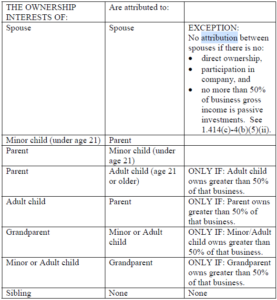Written by Kristina Kananen
There is a truism with qualified retirement plans covered under ERISA (Employee Retirement Income Security Act) that works until it doesn’t – when it comes to retirement plans, ERISA is the supreme law of the land. It would be nice to think that was always the case, but there are instances where State law has an impact on how a Plan operates. This paper will briefly highlight some of those times.
Federal law allows employee 401(k) elective deferrals to be withheld pre-tax. However, the State of Pennsylvania, as well as other states, taxes employee 401(k) deferrals. Obviously, the federal law covers federal taxes while state law covers state taxes. There was an issue in the past under the Economic Growth and Tax Reconciliation Relief Act (EGTRRA) where the maximum benefits and annual additions were increased, but there were states that had laws in place to limit those benefits for state purposes. In addition, when you consider which companies are included in the determination of a controlled group of companies and thus the required coverage of a qualified plan, the state laws impact qualified plans.
Let’s look at federal law regarding what constitutes a controlled group. Simply put, individual ownership can connect other businesses as a controlled group. For instance, when 80% of each corporation is owned by another member of the group and the parent corporation owns at least 80% of at least one other member of the group a Parent-subsidiary group is created. The more common scenario is the brother-sister group. This exists when the same five or fewer individuals own at least 80% of the members of the group and own at least 50% identical ownership in each corporation.
 The rub is in determining whose stock that must be included in the calculation. Federal law includes rules of attribution where family owners are considered to own the stock of other family members. IRC §1563 governs attribution for controlled groups of businesses.
The rub is in determining whose stock that must be included in the calculation. Federal law includes rules of attribution where family owners are considered to own the stock of other family members. IRC §1563 governs attribution for controlled groups of businesses.
As you can see from the above chart, a business owner’s family members are considered to own what the business owner owns. In a family run business it is not unusual to have three generations involved in the business. The complication comes in when one spouse owns a business, and the other spouse owns a completely unrelated business. Under IRC §1563, each spouse is considered to own the ownership of the other spouse which creates a controlled group. Many married couples balked at the idea of combining all their employees under one qualified plan, or providing substantially equal benefits, especially when the profitability of each company is very different from the other. The IRS came up with an exception to the controlled group rules, the ‘noninvolvement rule’.
Each spouse’s ownership in their own business under the noninvolvement rule can be considered separate for controlled group purposes if the following conditions are met.
- Each spouse does not own, at any time during the taxable year, any ownership in the other spouse’s business;
- Each spouse directs and manages his/her own company and is not a director or manager in the other spouse’s business;
- Not more than 50% of each company’s gross income is derived from royalties, rents, dividends, interest, and annuities; and
- There is no minor child.
As shown in the chart above, the minor child is considered to own the ownership of each parent.
But let’s consider the couple who have no minor children and each owns an unrelated company that was started during the marriage. Under the noninvolvement rule, their businesses would not be considered a controlled group, AS LONG AS they do not live in a Community Property state. The effect of living in a Community Property state is that each spouse owns 50% of what the other spouse owns, which means the first condition of the noninvolvement rule cannot be met.
The example above states that the businesses were started during the marriage. Most community property states allow that a company, or companies, started before the marriage will be considered separate property. However, any increase in the value of that separate property after the marriage will be considered should there be a divorce.
There are nine community property states:
- Arizona
- California
- Idaho
- Louisiana
- Nevada
- New Mexico
- Texas
- Washington
- Wisconsin
The other states are common property states. The determination of whether Community Property rules or common property rules apply is where the family lives.
The Community Property States impact not only which companies are included in a controlled group, but which employees must be included in the following testing:
- 402(a)(4) Nondiscrimination rules
- 401(k) Actual Deferral Percentage Test
- 401(m) Actual Contribution Percentage Test
- 404(a) Deduction rules
- 410(b) Coverage Test
- 411 Vesting requirements
- 415 Contribution Limits
- 416 Top Heavy Rules
While ERISA requires all employees of a controlled group be considered in qualification testing, it is the state law that has the last word on whether a controlled group exists.




